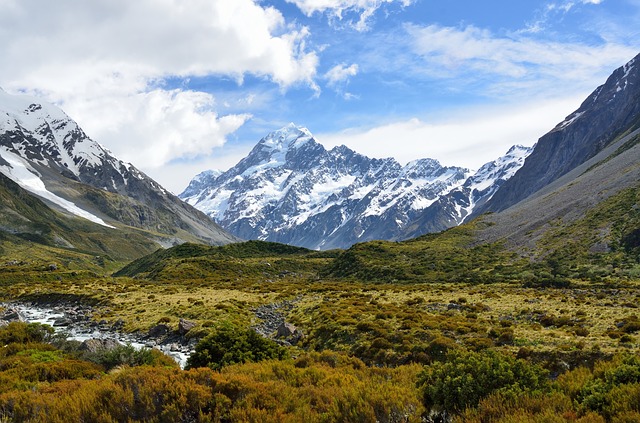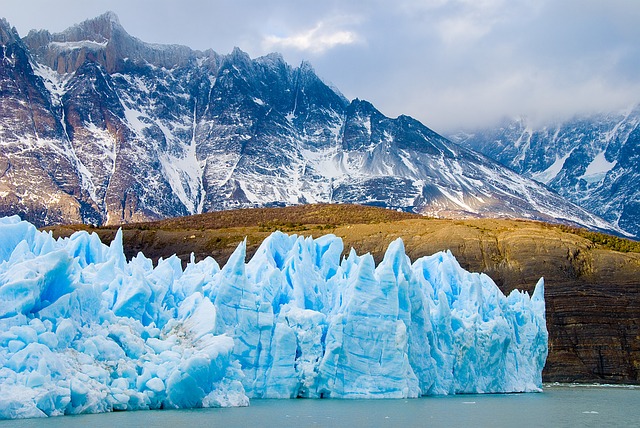For some, the idea of spending 40 years working in a cubicle is less than thrilling. In an adventure-filled world, we don’t want to spend our prime years confined to one place.
However, giving up a day job to travel indefinitely doesn’t seem like a smart decision. It seems like the direct opposite of growing up and planning for the future. Right?

Job scmob. We’re just going to lay here in bliss for the rest of our lives. photo: pixabay
As it turns out, you can still travel the world indefinitely while preparing for the future — in particular, retirement.
Here are five tips for retirement planning that won’t require you to give up your wanderlust:
1. Earn a location-independent, full-time income
I would argue it’s fun, but unsustainable to to jump from country to country without earning a “real” income. When needs are few, costs are low. You can volunteer in Costa Rica, couchsurf in France, and earn enough to stay in a cheap hostel while in Thailand. However, if you decide to return to America (or Australia, the UK, etc.), returning to a middle-class standard of living would be a challenge.

Experience the culture surrounding temples like this and plan for retirement. Win-win! photo: pixabay
So how do you earn a full-time living if you love travel?
Having a 40-hour job doesn’t have to mean selling your soul and living on daydreams. True! You can earn enough to enjoy life, save for retirement, and see lots of new places.
Here are a few great ways to earn a full-time income while still embracing a life of travel:
- Find a remote job. Hundreds of companies offer full-time remote jobs with benefits. Earn an American paycheck while living in Thailand or Ecuador. Usually you can set your own schedule. Many companies even offer a stipend for a coworking space, new computer, and other perks.
- Become a serious freelancer. The term “freelancer” doesn’t have to mean “I’m in between jobs.” When I left my full-time job to travel, I earned close to my original salary while freelancing on my own terms. Any job that can be done on a computer (writing, marketing, programming, graphic design, transcribing, etc.) easily converts to a location independent freelancing occupation.
- Take a job that offers sabbaticals. I have a buddy at IBM who gets 6 months off every several years (in addition to about a month off every year). He and his wife spend this time doing some serious traveling and enjoy shorter trips in the off years. Another great option is teaching (at any level) or doing seasonal construction (although the benefits aren’t usually as good).
- Find a job that allows you to travel. I planned to continue freelancing when my wife entered a 3 year program that has us stuck in one place for a while. However, I came across a corporate training role that paid well, looked like fun, and allows travel about 25% of the time. I took it! If you love travel, consider trainer or consultant opportunities.
(Related: 26 Jobs To Do While Traveling the World)
2. Use travel deals to boost your investing power
Travel isn’t always expensive. Many exciting adventures can be very affordable. When you save on travel costs, you’ll have more left over for retirement planning.

Half the Clothes’ author, Jema, leveraged the affordable adventures offered by New Zealand’s wilderness to save more than half her paycheck for retirement. Thanks to the budget adventures in NZ’s backcountry, she kept her spending under $25 a day for a year! photo: pixabay
The first step to economical travel is focusing on low-cost countries. In Southeast Asia or South America you’ll be able to live on a fraction of the costs required to get by in Europe or Australia.
After location, the next five big traveling costs are airfare, lodging, food, insurance, and activities.
Here are a few ways to spend 1/10th of what others spend on travel:
- Cheap or free accommodation: Maybe you know Airbnb or Couchsurfing, but what about the many other free lodging opportunities that exist? Willing volunteers and house sitters can get accommodation and sometimes even meals, for free.
- Cheap or free flights: If your dates and destinations are flexible, you can travel to Europe or Asia for under $400. And with the right travel credit card, you may be able to land free flights!
- Cook, eat local: Eating like an American in Thailand will cost you $15-20 per meal, but a Thai meal is a mere $2. In Europe, making your own meals in a hostel or AirBnb kitchen results in similar savings.

Amazing food you couldn’t do better and cheaper? Welcome to Thailand! photo: pixabay
- Protect yourself from disasters: How does buying the right travel insurance insurance lead to saving money? Being insured can save you thousands if something bad happens on your trip. In your search for an affordable plan, keep in mind that your current health plan might cover you, and your credit card may have limited travel insurance as well.
- Book locally: Online rates can be dramatically inflated. If possible, avoid booking activities before arriving. I’ve found deals for 50% of the online price once on the ground.
Now, use (at least some of) the dollars you saved from frugal travel and grow your retirement nest egg. Anyone can invest like a millionaire without being rich.
3. Avoid trivial purchases
While short and simple, this strategy is huge.
Don’t waste money on things that don’t matter to you.
If travel is your passion, don’t try to keep up with the Jones’ when it comes to cars, RVs, boats, houses, and HDTVs. Every purchase you make reduces your ability to spend on things that really matter to you (or save for retirement).

Dammit. That RV seemed like it was going to be so much fun. I can’t believe we’ve only used it five times in two years. $10,000 didn’t seem like that much money, but I guess it kind of is. Especially at 3.95% apr. Sadface. photo: pixabay
If your vehicle doesn’t really matter to you, don’t waste $15k+ on a new car. Finding an older vehicle that does the job can leave you with an extra $7,000 to $10,000 to split between travel and your retirement planning..
4. Max out your contributions
One of the best retirement planning moves is to max out your IRA and 401k contributions as often as possible. Everyone from full-time employees to freelancers will reach a retirement goal far earlier by rising to this challenge.
To avid travelers, this can seem tough. But, even scheduling $10/month to go to retirement saving is a step in the direction of saving enough for the long-term.

It may seem like you’re moving at a glacial pace at first, but eventually maxing out your contributions will pay off in being able to afford a lifetime of adventures. photo: pixabay
Automating contributions to a retirement account is a great way to ensure you effortlessly pay into these accounts before buying your next river rafting or skydiving experience. Then you’ll enjoy life’s adventures today and in the future.
Finally, Americans should be sure to pay your fair share of taxes. Skipping out on a year or two of Social Security payments reduces your own payouts in the future, which are based on the 30 years that you earned the most.
5. Buy a house (or several)
Owning a home (or even a few of them) may seem counterintuitive to the lifestyle of a perpetual traveler, but it can be one of the smartest money decisions you can make!
First off, if you live in your home country for most of the year, buying a home there can obviously be a great way to start building up equity. Instead of paying rent to someone else, every monthly mortgage payment goes to saving for your retirement.
But it get’s better”¦
If you frequently visit the same international destinations, owning a property there can give you free lodging as you travel around the world while providing additional income as a rental property.

Oh this little thing? It’s just part of our rental portfolio. We try to summer there at least once every four years. No big deal. photo: pixabay
Just recently I met a retired couple from Washington State that owned a houseboat in Washington, a small home in Canada, and three houses in Costa Rica. They move between the properties themselves, and rent out the rest on Airbnb.
They have constant income in retirement, and write off their flights as business expenses because they are visiting their properties — so they save substantially in taxes!
Of course, owning rental properties can become a time consuming endeavor (and expensive) if you do it wrong. However, if you’re willing to invest some time and thought into finding great deals, real estate is one of the easiest ways to grow your wealth.
Ultimately, focus on maximum happiness.
Many travelers focus on the present at the expense of the future. Don’t fall into this habit.
On the flip side, many people spend their lives working hard for junk they don’t even want. You don’t want to be a part of this category either.
Commit to living a life that maximizes your happiness, value, and self-worth both today and in the future. Then saving for retirement will be a breeze — and your life will be far richer.
♣
 Robert Erich writes about the digital nomad lifestyle on MoneyNomad.com and discusses personal finances topics for InvestmentZen.com. When not working or exploring the world, he enjoys meeting new people and discussing epic business ideas.
Robert Erich writes about the digital nomad lifestyle on MoneyNomad.com and discusses personal finances topics for InvestmentZen.com. When not working or exploring the world, he enjoys meeting new people and discussing epic business ideas.
More Travel, Money, Work advice:
♥ How to Get Free Flights
How to Become a House Sitter
♥ What it Costs to Travel the World
26 Jobs to Do While Traveling the World
♥ 6 Unspoken Truths About Making Money While Traveling




Twitter Facebook Google+ StumbleUpon Reddit Pinterest